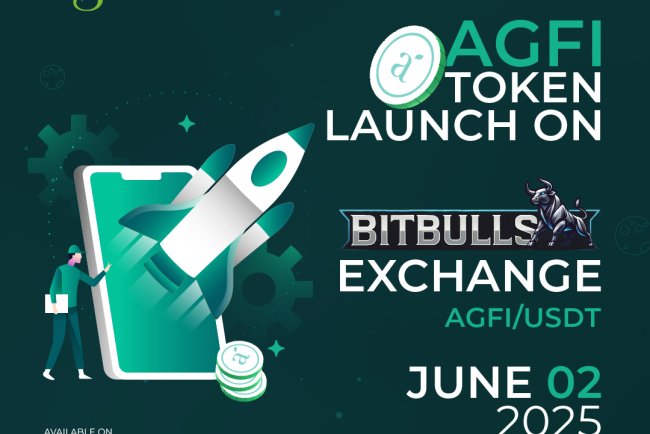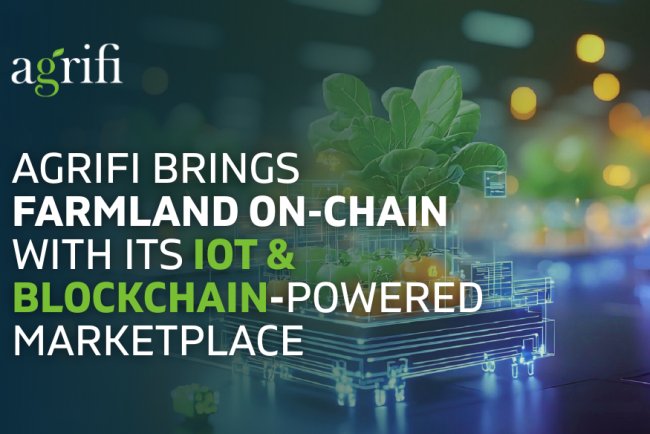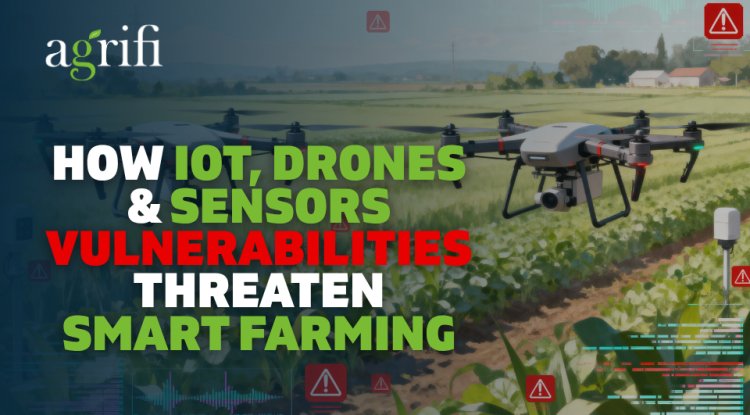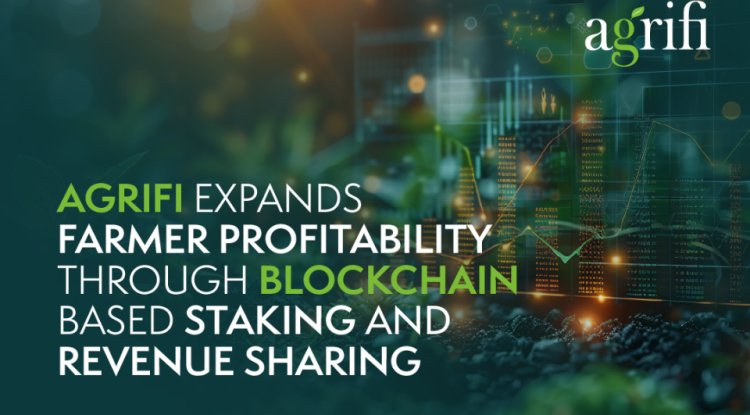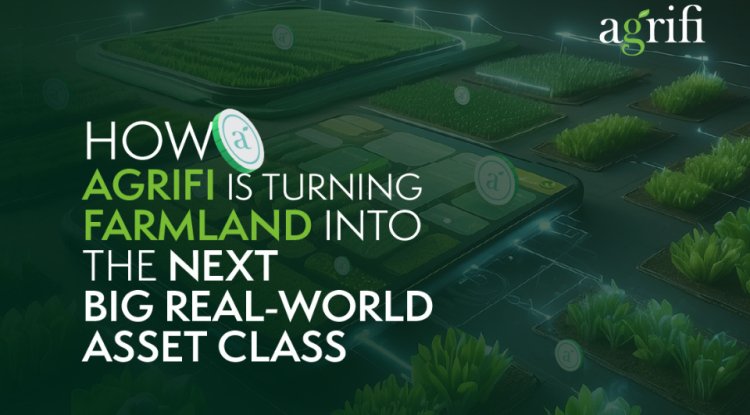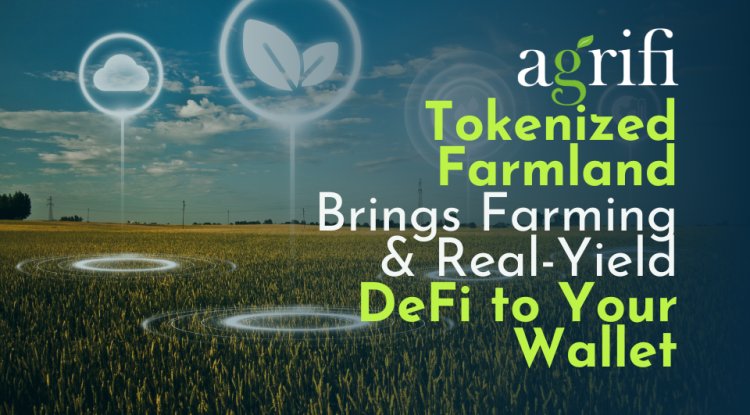The Next Agricultural Revolution Has Arrived!
The future of farming is digital, decentralized and powered by Web3. While Web3 is often associated with cryptocurrencies and decentralized finance (DeFi), its impact reaches far beyond finance—it's reshaping entire industries and agriculture is no exception.
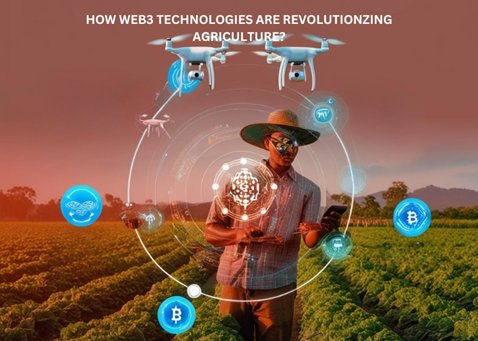
From farm-to-fork transparency to direct farmer-to-consumer transactions, Web3 is transforming how food is grown, traded and consumed. Technologies like blockchain, smart contracts and decentralized applications (dApps) are revolutionizing supply chains, financial access and sustainability in agriculture.
Here’s how Web3 is planting the seeds for a smarter, more efficient future in farming.
What is Web3 and Why Does It Matter for Agriculture?
Web3 is the next generation of the internet—a decentralized ecosystem that shifts control from large corporations back to individual users.Unlike Web 2.0, where data is stored on centralized servers, Web3 enables direct, peer-to-peer interactions using blockchain, smart contracts, and dApps.
Key Web3 Technologies Shaping Agriculture:
-
Blockchain – A secure, transparent ledger ensuring traceability and fraud prevention across the agricultural supply chain.
-
Decentralized Applications (dApps) – Cutting out middlemen, allowing direct farmer-to-buyer transactions and fair pricing.
-
Smart Contracts – Self-executing agreements that automate payments, prevent fraud, and speed up transactions between farmers, suppliers, and buyers.
How Web3 is Transforming Agriculture
1. Farm-to-Fork Transparency & Traceability
One of agriculture's biggest challenges is supply chain transparency. Today’s consumers want to know where their food comes from, how it was grown and whether it meets ethical standards. Blockchain-powered traceability ensures that every step—from planting and harvesting to transportation and retail—is recorded on a tamper-proof ledger.
Example: A coffee buyer scans a QR code on their package and instantly sees farm details, sustainability practices and fair-trade certification.
2. Fair Trade & Direct Farmer Payments (No Middlemen!)
Farmers often struggle with unfair pricing due to middlemen, brokers and financial institutions taking a cut. Web3 eliminates these intermediaries, allowing farmers to sell directly to consumers via decentralized marketplaces. Smart contracts ensure instant payments—no delays, no bank fees, just fair compensation.
Example: A farmer in India sells organic wheat directly to a bakery in the US and receives instant crypto payments via blockchain.
3. Smart Contracts for Automated Farming Agreements
Agriculture relies on agreements—from supply contracts and land leases to equipment rentals and crop insurance.
Web3 automates these through smart contracts, ensuring:
-
Instant payments upon successful crop delivery.
-
Auto-activated insurance claims in case of natural disasters.
-
Secure, tamper-proof land ownership records.
Example: A farmer signs a smart contract with a food distributor—once the crops are delivered, payment is released automatically without delays or disputes.
4. DeFi for Farmers: Unlocking Global Financing
Traditional banks often deny loans to small farmers due to lack of credit history. Web3 introduces DeFi (Decentralized Finance)—a blockchain-powered financial system that provides direct, peer-to-peer lending.
With DeFi, farmers can:
-
Access microloans from global investors.
-
Use crops as collateral for blockchain-based loans.
-
Crowdfund agricultural projects through decentralized platforms.
Example: A farmer in Africa gets funding from an investor in Europe—without needing a traditional bank loan.
The Future of Web3 in Agriculture
-
The Web3 revolution in farming is just getting started. As blockchain adoption grows, we can expect:
-
Tokenized Farmland Ownership – Farmers sell fractional shares of land to investors via blockchain.
-
Decentralized Agricultural Marketplaces – Farmers trade crops & seeds globally, without supply chain restrictions.
-
IoT & AI Integration – Blockchain-powered smart farms will optimize farming using real-time data
Applications of Web3 in the Real World in Agriculture
1.Tokenization of Assets:
Using Web3, agricultural assets like crops or land can be tokenized. They are able to get money by issuing tokens representing interests in those assets and new mechanisms to invest in farming and make capital accessible for small farmers.
2.Decentralized Finance (DeFi):
DeFi platforms provide farmers with an opportunity to gain access to finance and loans independently of the banking system. This facilitates financial inclusion for farmers that are not financially included in traditional banking systems, which allows them to expand their business or invest in sustainable agricultural practices.
3.Ownership of Data:
In Web3, farmers can own and manage their farm data. This may include soil health information, crop yields, weather patterns, and others. Farmers may own their data to share it selectively for improved market intelligence, targeted expert advice, or engagement in digital marketplaces.
4.Challenges and Considerations
Although the opportunities presented by Web3 in agriculture are large, there are some challenges that must be taken into consideration:
5.Technical Barriers: Farmers will have to learn to use new technology and processes that come with the adoption of Web3 technologies, which may present a challenge to those with insufficient technological capabilities or expertise.
6.Regulatory Concerns: As in the case with any new tech, there has to be regulations on data protection, tokenization, and smart contracts to allow Web3 technologies to meet the local laws and standards.
7.Education and Training: Farmers should be educated to optimize the utility of Web3. Appropriate training programs and facilities will be required to equip farmers with skills for effectively embracing Web3 tools.
Conclusion:
The Future of Agriculture with Web3
The integration of Web3 technologies, including blockchain, decentralized applications, and smart contracts, is poised to revolutionize agriculture by facilitating transparency, decentralization, and efficiency. For farmers, this translates to greater ownership of their crops' data, simplified access to capital, and the capacity to maximize supply chains and guarantee sustainable, environmentally friendly farming practices.
Looking ahead, adopting Web3 technologies in farming will enable farmers not only to boost profitability but also to support a greener, more sustainable world. Web3 is not just a hype anymore; it's the new frontier of the digital revolution, and farming could gain a great deal from it.
What's Your Reaction?








